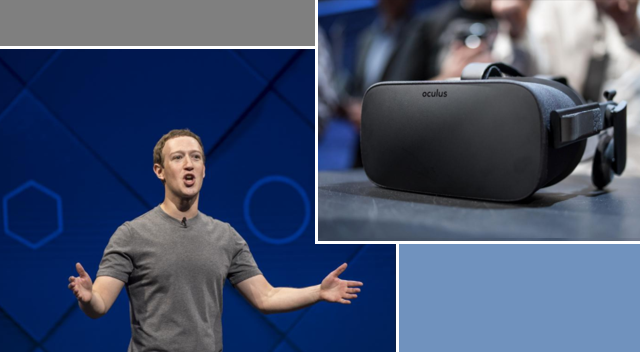
Oculus VR could be key for Facebook to compete with Apple, Alphabet in race for speech recognition tech
Can Facebook catch up to Apple and Alphabet in the sprint to bring advanced speech recognition to market?
Apple Inc.’s Siri and Alphabet Inc.’s Google Assistant are already helping consumers use voice commands to search the internet, order a pizza or summon a ride. According to a new report out from CNBC, the speech recognition market could reach $10 billion by 2022, per data out of research firm Markets and Markets.
But Facebook Inc. has fallen behind its Silicon Valley competitors where speech recognition is concerned. One reason is its lack of marketable devices pushing the company to make fast advances in the sector. While the social media platform has more than 2 billion active users, Facebook doesn’t lay claim to popular hardware or an operating system that would place a voice assistant in consumers’ hands.
Virtual reality Oculus hardware may make the difference for the Menlo Park-based company. Voice commands are especially important for users wearing the headsets who don’t want to access a keyboard to control the device.
“To explore any interesting hands-free interfaces, you will definitely need speech,” Joaquin Quinonero Candela, head of Facebook’s Applied Machine Learning group, said last week, per CNBC’s report. Candela said his unit has been working on speech enhancements for more than two years, bolstered by the 2013 acquisition of Jibbigo, a mobile offline language translation application.
Speech recognition debuted for Oculus in late 2015, but is only compatible with U.S. English, CNBC reported. The company is currently working on support for additional English dialects and hopes to make the speech recognition technology available offline and may eventually support other languages.
Video is another area where Facebook is applying speech recognition technology. Researchers have already pushed forward with the tech to automatically generate captions of videos, which is helpful when social media users are scrolling with the sound turned down on their devices.
“We did experiments — we got a double-digit increase in engagement with videos if we captioned them,” Candela said. The tech has been particularly appealing to Facebook advertisers.
Despite the lack of major speech recognition advancements, CEO Mark Zuckerberg has made AI research a top priority at his company over the past few years. Facebook hired New York University’s top “deep learning” professor, Yann LeCun, in 2013 to head up its AI lab in New York. It also launched another AI lab at its headquarters in Menlo Park and opened an AI lab in Paris in 2015.
Zuckerberg eventually plans to use AI to build systems that can recognize everything within an image or video, including people and objects. He also hopes to build machines that can answer a question in any language. In fact, Zuckerberg is so dedicated to AI that he spent a year building an AI butler named Jarvis to help run his home.
20170707

